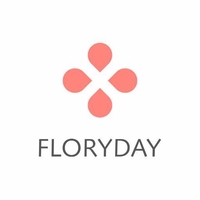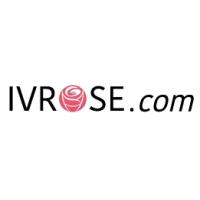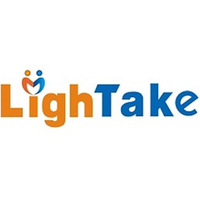Age Seamlessly Using Retinol
- by Daryl Fillion
- 2025-01-23 20

Aging can be an overwhelming process for many people as it affects their beauty and confidence. Many skincare enthusiasts often notice fine lines, wrinkles, melasma and freckles on their skin just because they are missing out on one of the most powerful ingredients to combat aging, retinol. It is known for its ability to reverse the aging signs resulting in a smooth and radiant skin. It can be found in many anti-aging creams and serums. It is also used for acne treatment and hydration. It’s important to remember that your skin becomes more delicate the day after using retinol, so protect yourself by applying sunscreen with SPF 30 or higher, or by limiting sun exposure.
While aging is a natural process which everyone has to go through, there are certain factors and habits which result in premature aging. So instead of overwhelming your skin with multiple products, focusing on learning a basic skincare routine according to your age and concern can be more beneficial and effective. By selecting the right type of retinol according to your skin type, you can fight the signs of aging inside and out.
This blog will cover everything you need to know about retinol, its types, uses and importance. So let's dive into the blog and achieve your dream of staying forever young!
What is Retinol and Why is it Used?
Until you reach your early 30’s, the cell regeneration process is fast, revealing a fresh layer of untouched skin. However after entering late 30’s, this process slows down resulting in dull complexion and appearance of wrinkles. Retinol is a part of the retinoid family, a form of Vitamin A, essential for skin health, vision and immune function. It can be named as the magic ingredient as it has endless benefits and helps in reversing the damage that has been already done. It can be used to treat acne by increasing the cell turnover process, reducing dark spots, wrinkles, bumpy texture, uneven skin tone, and for hydration.
Factors which contribute to premature aging often include unhealthy diet, smoking, environmental factors, stress and repetitive facial expressions. As you age, the skin's elasticity and ability to produce collagen also decreases. The sun might also be the culprit which results in the production of melasma, fine lines and freckles. Many people overlook how important SPF is. When retinol is applied on the face, it penetrates deeply into the skin layers, speeds up the cell turnover process, increases elasticity and boosts the production of collagen, resulting in a smooth, fresh and plump skin with a bright complexion.
If you are wondering how to use it, then there are a few important things to note. Cleanse your face using a gentle cleanser according to your skin type, then use a pea sized amount of retinol and apply it to your whole face, make sure your skin is completely dry as applying it on damp skin might trigger irritation, avoid the eye area as it is sensitive and to lock everything apply a moisturizer. Don’t forget to wear sunscreen the next day consisting of higher SPF as it can make your skin more prone to sensitivity or try to avoid direct sun exposure. Start applying it once a week and gradually increase the frequency as your skin starts adapting it. If you are pregnant or suffering from any serious disease then it is better to consult a doctor.
Types of Retinoids - Selecting The Right Type for Your Skin
Selection of the right type of retinol is necessary for aging gracefully. There are many types of retinoids available in the market. Selection of the right type that fits perfectly for your concern can be a challenging and time consuming task. There are six main types of retinoids used for mature looking skin, divided into two categories, natural retinoids and synthetic retinoids.
Natural Retinoids
These are the type of retinoids that are available over the counter without any prescription. They come in a range of strengths, from low to high, allowing you to pick the one suitable for your skin type and tolerance level. They are present in most of the anti-aging creams. They include:
Retinol: It is the most common form of retinoid found in the OTC skincare products. It improves skin tone and helps in reducing hyperpigmentation.
Retinyl Palmitate: If you are someone who struggles with excessively sensitive skin and has a dry skin type with minimal wrinkles then you may consider it. It is the least potent OTC retinoid which means that it can be used without any prescription. It is used in wrinkles cream and serums to target wrinkles and fine lines making the skin look smooth and flawless.
Retinaldehyde: If you have sensitive skin and want to incorporate a product more effective than retinol without any prescription then it will work the best. It has more strength than retinol and is an OTC product. It is used to treat hyperpigmentation, blemishes and dark spots resulting in a radiant, spotless and glowing skin with enhanced complexion and hydration.
Tretinoin: If you have tried retinol and are looking for something more efficient for anti-aging, then this is the magic ingredient which will do wonders for your skin. It is a prescription medicine and the most potent form of retinoid that works by unclogging pores and promotes the growth of new skin cells. It is used for acne treatment and can reduce fine wrinkles, dark spots, rough skin and sun damage and gives the glass skin effect.
Synthetic Retinoids
These types of retinoids require a prescription and are not available over the counter. If your skin doesn't respond well to the natural retinoids with lower strengths, then you might consider these stronger options. They include:
Tazarotene: Are you tired of finding the perfect retinoid for mature skin? If your skin reacts well to the retinoid products then you may shift towards using tazarotene as it is the most powerful retinoid and is available by prescription only. It treats many skin issues including acne by clearing pores, psoriasis by reducing the number of skin lesions and reducing the dry and patchy skin, wrinkles and dark spots by increasing the thickness of the outer skin layers.
Adapalene: It is an OTC retinoid used majorly to treat acne. Other than that, it can also be used to prevent other skin conditions like melasma and actinic keratoses. If you are looking for something inexpensive yet effective then this is the best option available.
In conclusion, retinol can be a gamechanger in your skincare routine for overcoming skin issues which can take a toll on your mental health. Understanding your skin type and incorporating the right type of anti-aging creams in your routine for overall skin hydration and acne treatment, is the most crucial step. Overuse of retinol can increase skin sensitivity and irritation, so it’s important to gradually build the threshold, so your skin can handle it and try avoiding sun exposure or wear a sunscreen consisting of at least SPF 30. Follow these steps in your late 20’s and your skin will thank you decades later, allowing you to age gracefully.






Leave A Comment